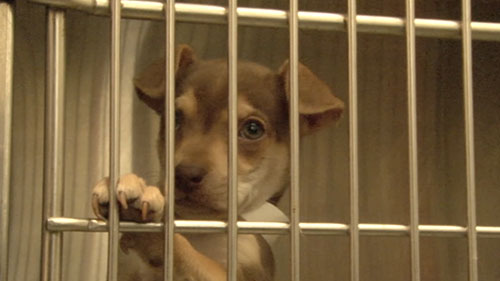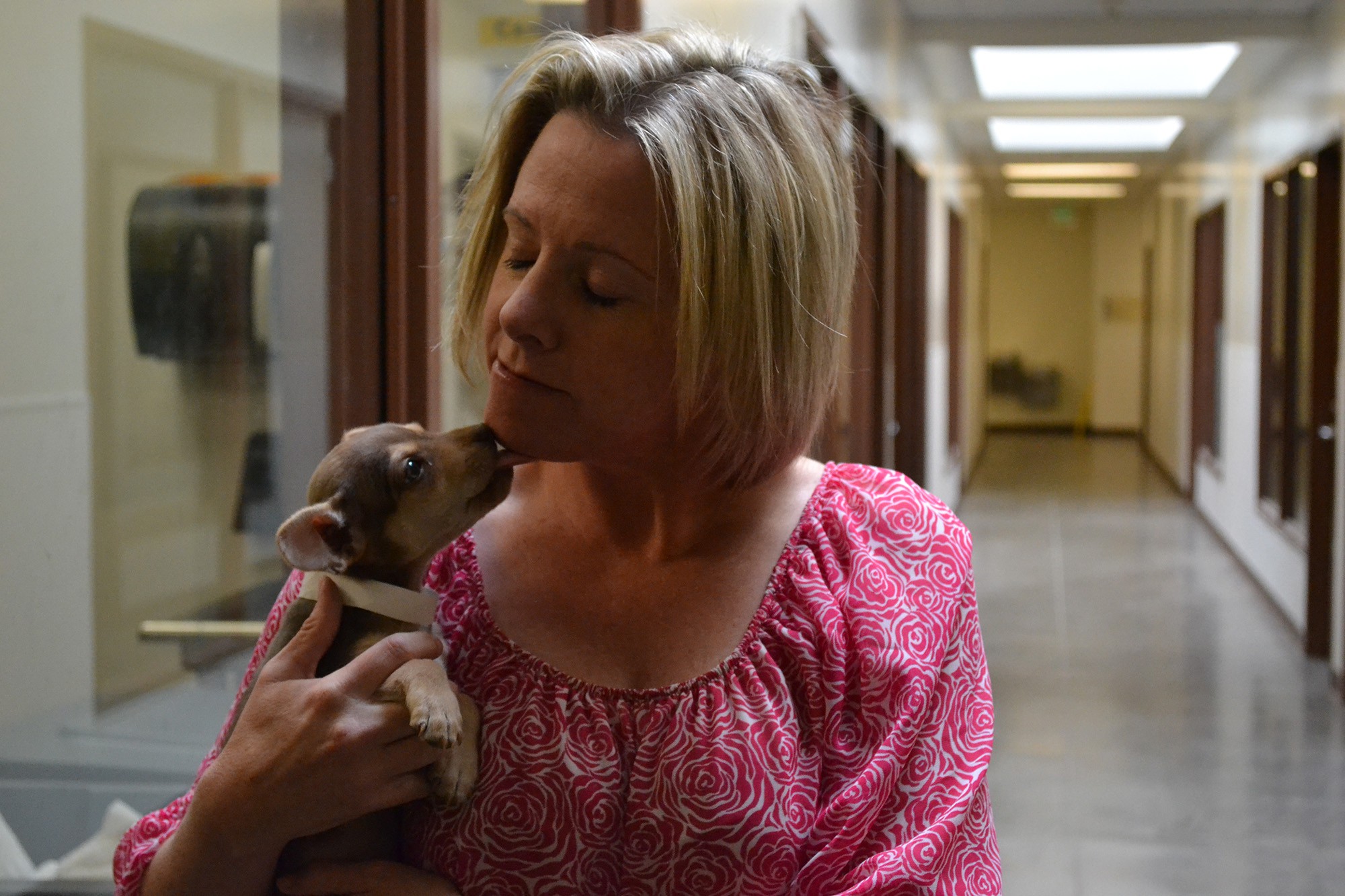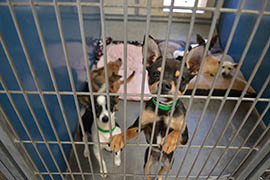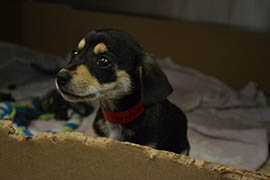Cronkite News has moved to a new home at cronkitenews.azpbs.org. Use this site to search archives from 2011 to May 2015. You can search the new site for current stories.
With overabundance of chihuahuas in shelters, groups exporting them
PHOENIX – Retired orthopedic surgeon Peter Rork and his co-pilot Doyle, a black Labrador retriever, spend their free time flying precious, sometimes barking, cargo in Rork’s Cessna. His last flight in March included 30 small dogs traveling from the Valley to a shelter in Idaho.
“You almost feel like Santa Claus with a sled pulling in. I’ve got all kinds of goodies in the back of my plane,” Rork said from his home in Jackson Hole, Wyo.
Rork’s organization, Dog Is My CoPilot, is among groups around the country that transport dogs by cars and planes to combat an overabundance of certain breeds in areas, a problem that often results in animal euthanasia.
On trips out of Arizona, the breed usually filling Rork’s plane is chihuahuas.
“We have so many here that it tends to be overwhelming for people,” said Melissa Gable, public information officer at the Maricopa County Animal Care and Control. “Sending them some place where they might not have as many chihuahuas certainly means they’ll get adopted a lot quicker than they would if they stayed here.”
In February, for example, Arizona Chihuahua Rescue worked with Gable’s organization to transfer 25 chihuahuas to animal rescue group in Pennsylvania.
Judy Zimet, a Phoenix attorney who also serves as the executive director of Dog Is My CoPilot, said the organization flies to 10 states in the Pacific West and Rocky Mountain regions. Since the organization was founded two years ago, Rork has transported more than 1,000 animals to no-kill shelters in other states.
How the breeds are selected from the shelters comes down to supply and demand, Zimet said. In some states the organization takes big breeds from shelters and transfers them to cities such as San Francisco that don’t have a lot of large, floppy-eared breeds.
Maricopa County only exports animals and has been a large supplier of small breeds heading to out-of-state rescue groups.
“Arizona is specifically chihuahua country for us,” Zimet said.
“Before we were bringing dogs, people would go to the shelter and they wouldn’t find what they wanted and they’d end going to the puppy mills or they’d go on Craigslist or to breeders,” she said. “But now people can find what they need at the shelters, and that way we help reduce overpopulation.”
Kari Nienstedt, Arizona director for the Humane Society of the United States, said transporting animals to other regions is a national trend.
“I think it really kicked into high gear after Hurricane Katrina,” Nienstedt said in a telephone interview. “There was a growing awareness that some areas had a bigger need for population issues and other areas didn’t; other areas had needs for adoptable pets.”
“Up north there are a lack of puppies and small dogs, so sometimes they’re shipping from south to north, sometimes they’re shipping from west to east,” she said. “It’s a great opportunity to reduce euthanasia in some of these cities.”
According to Michael Morefield, shelter operations manager at the Arizona Animal Welfare League and SPCA, Maricopa County has the second-largest rate of euthanasia for cats and dogs in the country. The first is Los Angeles County.
Morefield said chihuahuas and pitbulls are the most common breed euthanized here.
In 2012, 2,476 chihuahuas were euthanized, he said.
“It’s massive; we have a very serious problem in Maricopa,” he said.
Morefield said his group partnered with US Airways last year to transport chihuahuas out of Arizona. Over the course of a few months, the experimental partnership transported nine dogs to other states and Canada.
“One of our dogs that was taken to Canada lasted three hours before he was adopted because they’re unique up there,” he said.
For Jonathan McDonell, director of operations at HALO Animal Rescue, working with Dog Is My CoPilot over the last couple years to relocate the pets has been tremendously successful.
“It’s something that’s been done for a while, but that’s gaining a lot of momentum right now,” McDonell said.
“It was a fantastic opportunity for us to get some of the dogs that have been here awhile, get them out of here and get them into a community that is really looking for smaller dogs,” he said.
Leigh Carter, director of development at HALO, said 12 of the 30 dogs that were sent to Idaho last Friday have been adopted.
Rork, who funds Dog Is My CoPilot mostly out of pocket, said he knows the animals he leaves behind likely won’t make it, so he tries to make every flight as full as possible.
“It’s like a Tetris puzzle trying get all the crates in the plane,” he said. “It really is a labor of love and money, but I enjoy it.”











